Turning Points in Christian History 7
Al Krummenacher


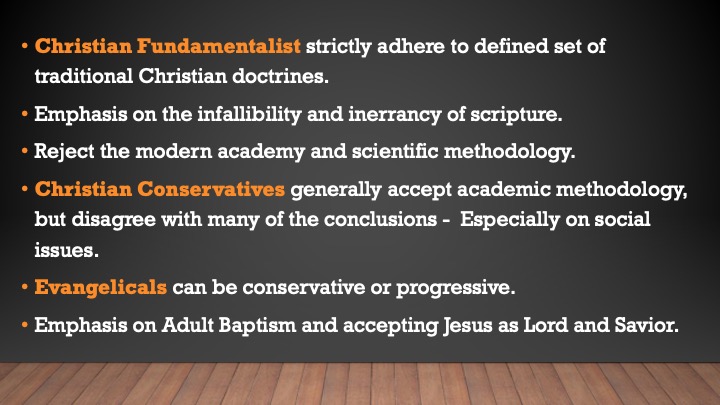
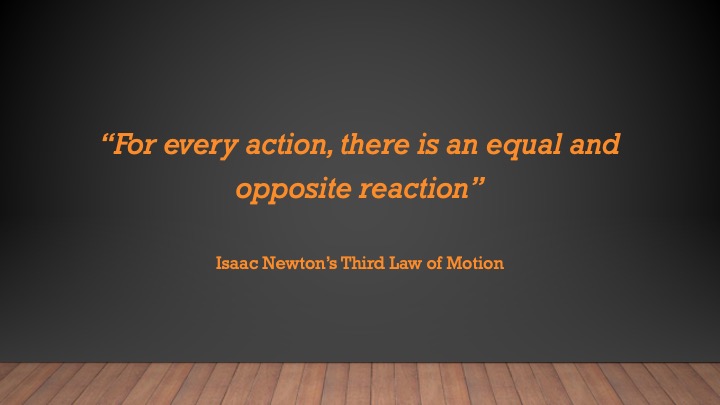


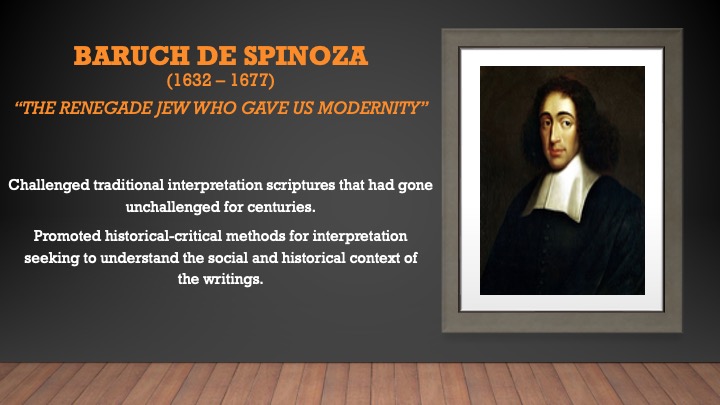
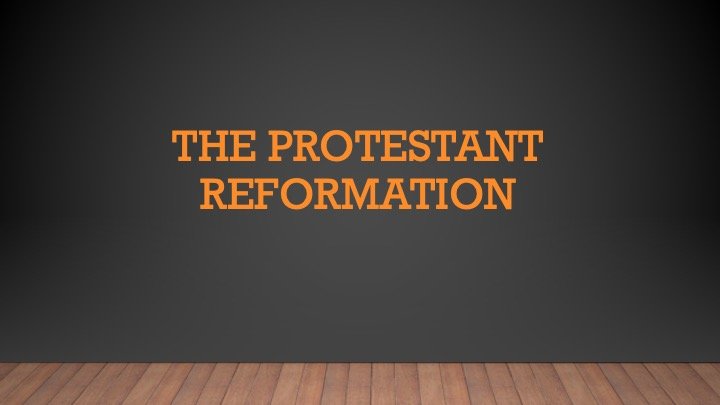
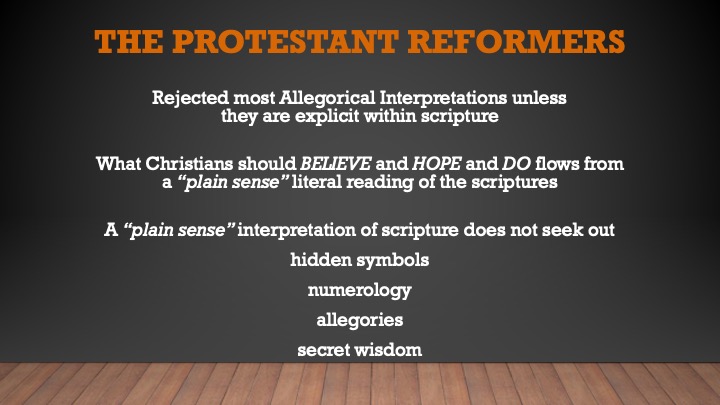
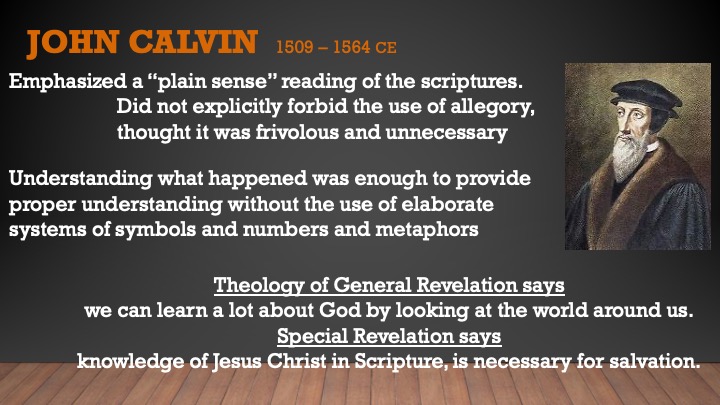
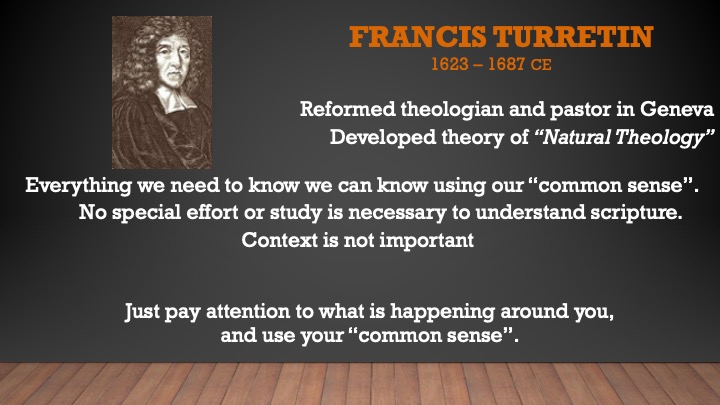
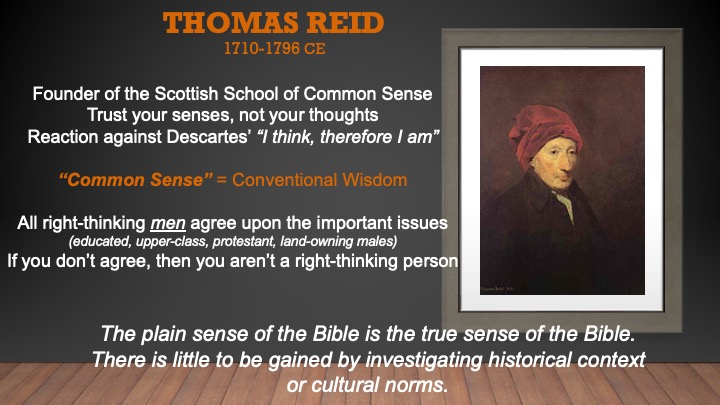
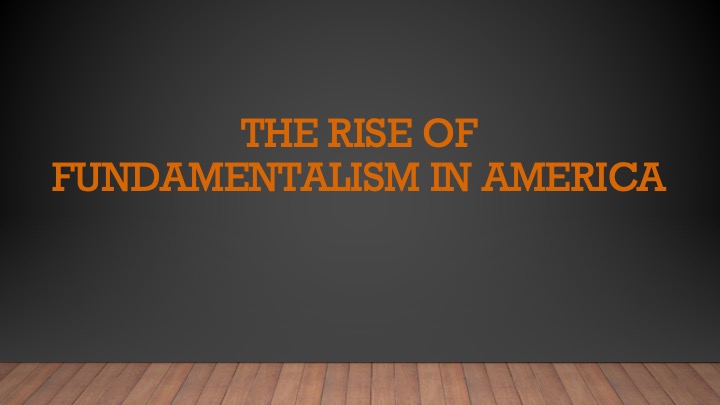
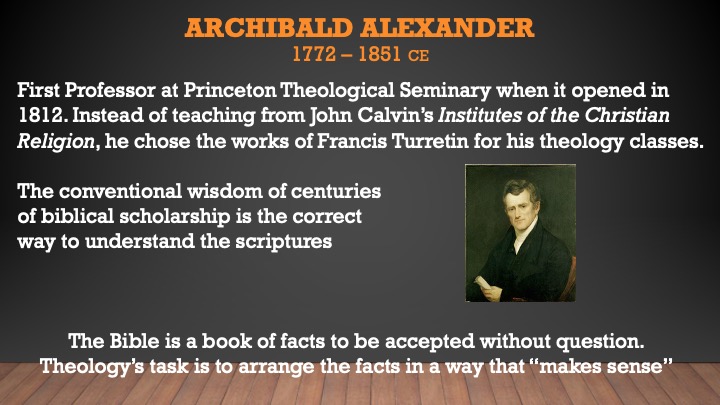
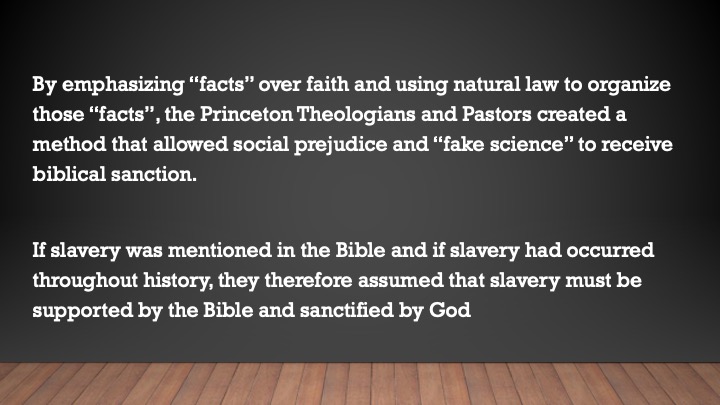
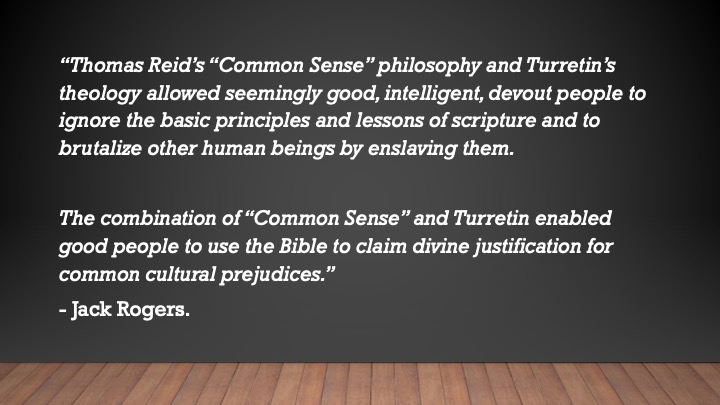

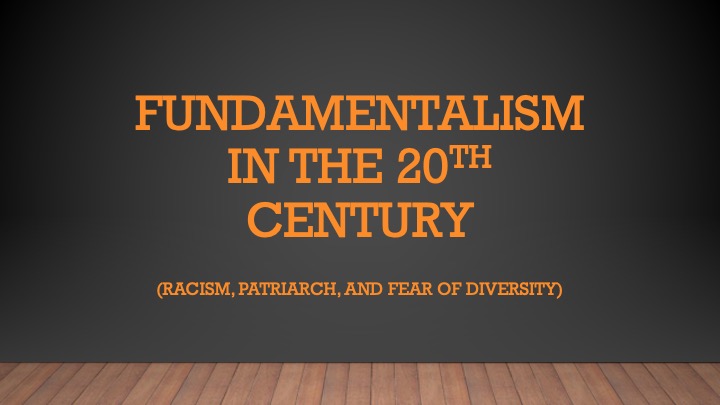
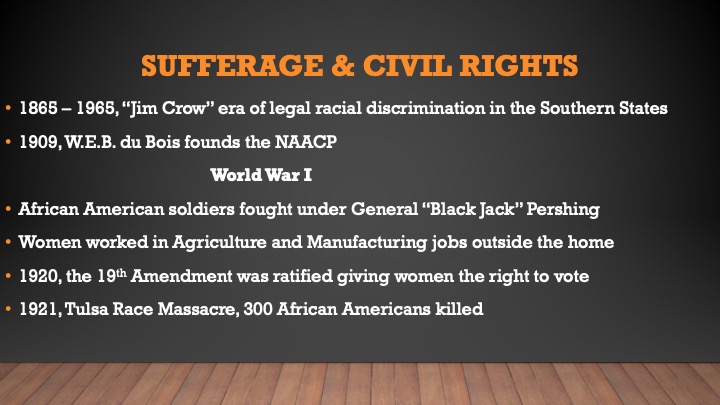
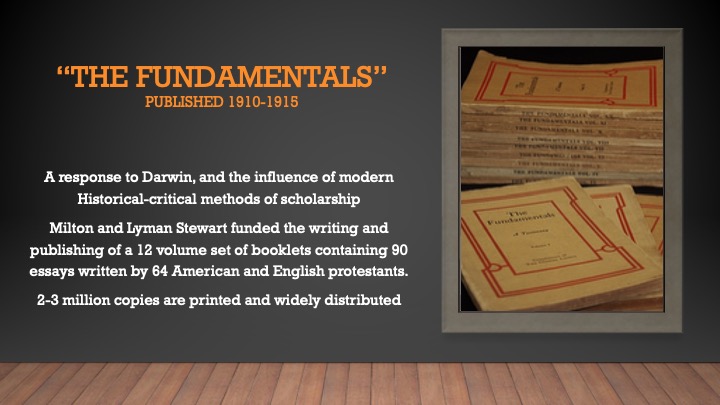
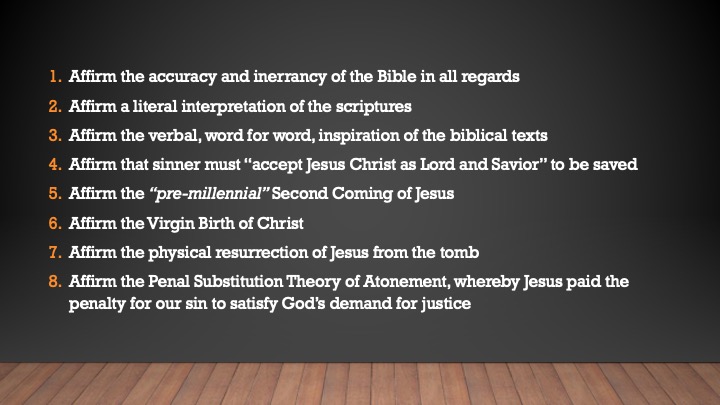
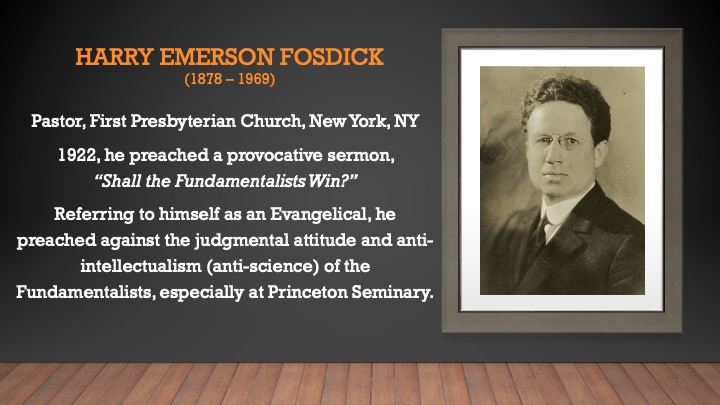
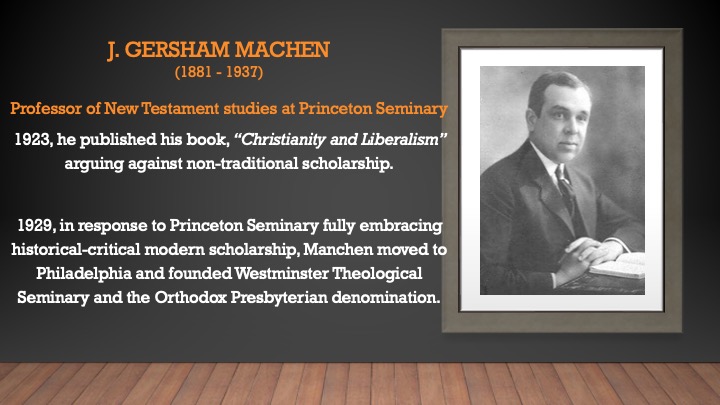

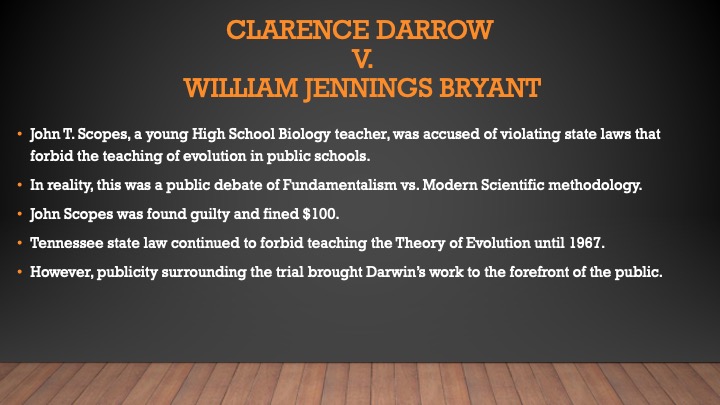
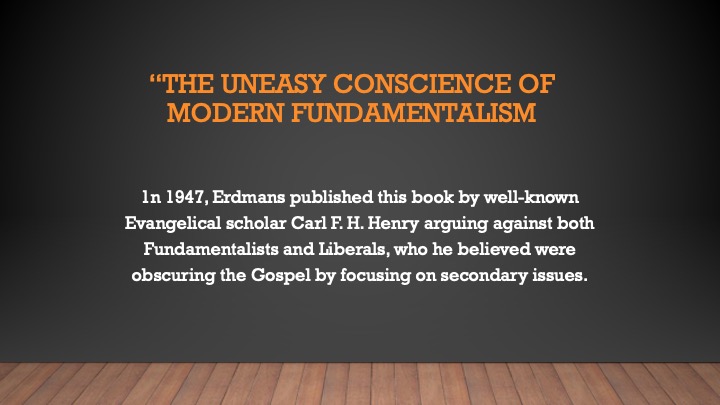
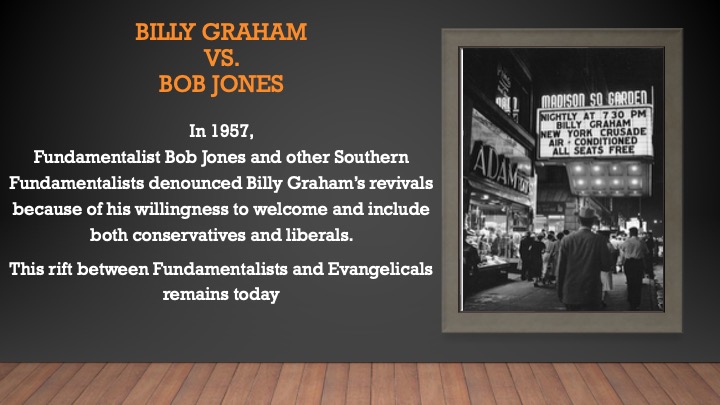
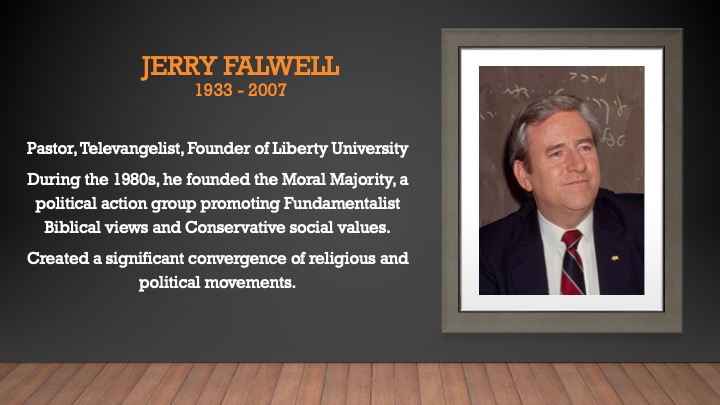
Class Note: In the class discussions a class member (Andy Greenawalt) described a recent book on Christian fundamentalism that was getting a lot of attention for both its insight and humor. We decided to provide a little more information on it: See this Link:
https://www.thirdwell.org/Separation-of-Church-and-Hate.html
And, as a further expansion of these teachings, we supply a comprehensive summary of Harry Emerson Fosdick's sermon entitled "Shall the Fundamentalists Win", delivered on May 21, 1922: See This link: 63288193
Turning Points in Christian History 7
Links
<< Home >> << Turning Points Menu >>
Turning Points in Christian History 7 - The Text
Turning Points in Christian History
The Rise of Christian Fundamentalism
What is Christian Fundamentalism?
• Christian Fundamentalist strictly adhere to defined set of traditional Christian doctrines.
• Emphasis on the infallibility and inerrancy of scripture.
• Reject the modern academy and scientific methodology.
• Christian Conservatives generally accept academic methodology, but disagree with many of the conclusions - Especially on social issues.
• Evangelicals can be conservative or progressive.
• Emphasis on Adult Baptism and accepting Jesus as Lord and Savior.
• “For every action, there is an equal and opposite reaction”
• Isaac Newton’s Third Law of Motion
How it all began . . .
Nicolaus Copernicus
(1473 – 1543)
Father of the ”Scientific Revolution” in Europe
Earth rotates and revolves around the Sun
Prioritized empirical evidence
Challenged traditional theories based upon Theology / Philosophy
Baruch de Spinoza (1632 – 1677)
“the renegade Jew who gave us modernity”
Challenged traditional interpretation scriptures that had gone unchallenged for centuries.
Promoted historical-critical methods for interpretation seeking to understand the social and historical context of the writings.
The Protestant Reformation
The Protestant Reformers
Rejected most Allegorical Interpretations unless they are explicit within scripture
What Christians should BELIEVE and HOPE and DO flows froma “plain sense” literal reading of the scriptures
A “plain sense” interpretation of scripture does not seek out hidden symbols
numerology allegories secret wisdom
John Calvin 1509 – 1564 CE
Emphasized a “plain sense” reading of the scriptures. Did not explicitly forbid the use of allegory, thought it was frivolous and unnecessary
Understanding what happened was enough to provide proper understanding without the use of elaborate systems of symbols and numbers and metaphors
Theology of General Revelation says we can learn a lot about God by looking at the world around us.
Special Revelation says
Knowledge of Jesus Christ in Scripture, is necessary for salvation.
Francis Turretin 1623 – 1687 CE
Reformed theologian and pastor in Geneva Developed theory of “Natural Theology”
Everything we need to know we can know using our “common sense”. No special effort or study is necessary to understand scripture. Context is not important. Just pay attention to what is happening around you, and use your “common sense”.
Thomas Reid 1710-1796 CE
Founder of the Scottish School of Common Sense
Trust your senses, not your thoughts. Reaction against Descartes’ “I think, therefore I am”
“Common Sense” = Conventional Wisdom
All right-thinking men agree upon the important issues (educated, upper-class, protestant, land-owning males). If you don’t agree, then you aren’t a right-thinking person. The plain sense of the Bible is the true sense of the Bible.
There is little to be gained by investigating historical context or cultural norms.
The Rise of Fundamentalism in America
Archibald Alexander
1772 – 1851 CE
First Professor at Princeton Theological Seminary when it opened in 1812. Instead of teaching from John Calvin’s Institutes of the Christian Religion, he chose the works of Francis Turretin for his theology classes.
The conventional wisdom of centuries of biblical scholarship is the correct way to understand the scriptures.
The Bible is a book of facts to be accepted without question.
Theology’s task is to arrange the facts in a way that “makes sense”.
By emphasizing “facts” over faith and using natural law to organize those “facts”, the Princeton Theologians and Pastors created a method that allowed social prejudice and “fake science” to receive biblical sanction.
If slavery was mentioned in the Bible and if slavery had occurred throughout history, they therefore assumed that slavery must be supported by the Bible and sanctified by God
“Thomas Reid’s “Common Sense” philosophy and Turretin’s theology allowed seemingly good, intelligent, devout people to ignore the basic principles and lessons of scripture and to brutalize other human beings by enslaving them.
The combination of “Common Sense” and Turretin enabled good people to use the Bible to claim divine justification for common cultural prejudices.”
- Jack Rogers.
Charles Darwin 1809 – 1882. English biologist and naturalist
1831 to 1836, he sailed with the crew of the HMS Beagle, allowing him to observe a great variety of biological and botanical species.
1859, he published “On the Origin of Species” which popularized the scientific theory of evolution through natural selection.
Theory of Evolution challenged traditional biblical beliefs about the origins of human beings
Fundamentalism in the 20th Century
(Racism, Patriarch, and Fear of Diversity)
Sufferage & Civil Rights
• 1865 – 1965, “Jim Crow” era of legal racial discrimination in the Southern States
• 1909, W.E.B. du Bois founds the NAACP
World War I
• African American soldiers fought under General “Black Jack” Pershing
• Women worked in Agriculture and Manufacturing jobs outside the home
• 1920, the 19th Amendment was ratified giving women the right to vote
• 1921, Tulsa Race Massacre, 300 African Americans killed
“The Fundamentals” Published 1910-1915
A response to Darwin, and the influence of modern Historical-critical methods of scholarship
Milton and Lyman Stewart funded the writing and publishing of a 12 volume set of booklets containing 90 essays written by 64 American and English protestants.
2-3 million copies are printed and widely distributed
- Affirm the accuracy and inerrancy of the Bible in all regards
- Affirm a literal interpretation of the scriptures
- Affirm the verbal, word for word, inspiration of the biblical texts
- Affirm that sinner must “accept Jesus Christ as Lord and Savior” to be saved
- Affirm the “pre-millennial” Second Coming of Jesus
- Affirm the Virgin Birth of Christ
- Affirm the physical resurrection of Jesus from the tomb
- Affirm the Penal Substitution Theory of Atonement, whereby Jesus paid the penalty for our sin to satisfy God’s demand for justice
Harry Emerson Fosdick
(1878 – 1969)
Pastor, First Presbyterian Church, New York, NY
1922, he preached a provocative sermon, “Shall the Fundamentalists Win?”
Referring to himself as an Evangelical, he preached against the judgmental attitude and anti-intellectualism (anti-science) of the Fundamentalists, especially at Princeton Seminary.
J. Gersham Machen
(1881 - 1937)
Professor of New Testament studies at Princeton Seminary
1923, he published his book, “Christianity and Liberalism” arguing against non-traditional scholarship.
1929, in response to Princeton Seminary fully embracing historical-critical modern scholarship, Manchen moved to Philadelphia and founded Westminster Theological Seminary and the Orthodox Presbyterian denomination.
Scopes Monkey Trial. Tennessee 1925
Clarence Darrow versus William Jennings Bryant
• John T. Scopes, a young High School Biology teacher, was accused of violating state laws that forbid the teaching of evolution in public schools.
• In reality, this was a public debate of Fundamentalism vs. Modern Scientific methodology.
• John Scopes was found guilty and fined $100.
• Tennessee state law continued to forbid teaching the Theory of Evolution until 1967.
• However, publicity surrounding the trial brought Darwin’s work to the forefront of the public.
“The Uneasy Conscience of Modern Fundamentalism
1n 1947, Erdmans published this book by well-known Evangelical scholar Carl F. H. Henry arguing against both Fundamentalists and Liberals, who he believed were obscuring the Gospel by focusing on secondary issues.
Billy Graham vs. Bob Jones
In 1957, Fundamentalist Bob Jones and other Southern Fundamentalists denounced Billy Graham’s revivals because of his willingness to welcome and include both conservatives and liberals.
This rift between Fundamentalists and Evangelicals remains today.
Jerry Falwell. 1933 – 2007
Pastor, Televangelist, Founder of Liberty University
During the 1980s, he founded the Moral Majority, a political action group promoting Fundamentalist Biblical views and Conservative social values.
Created a significant convergence of religious and political movements.